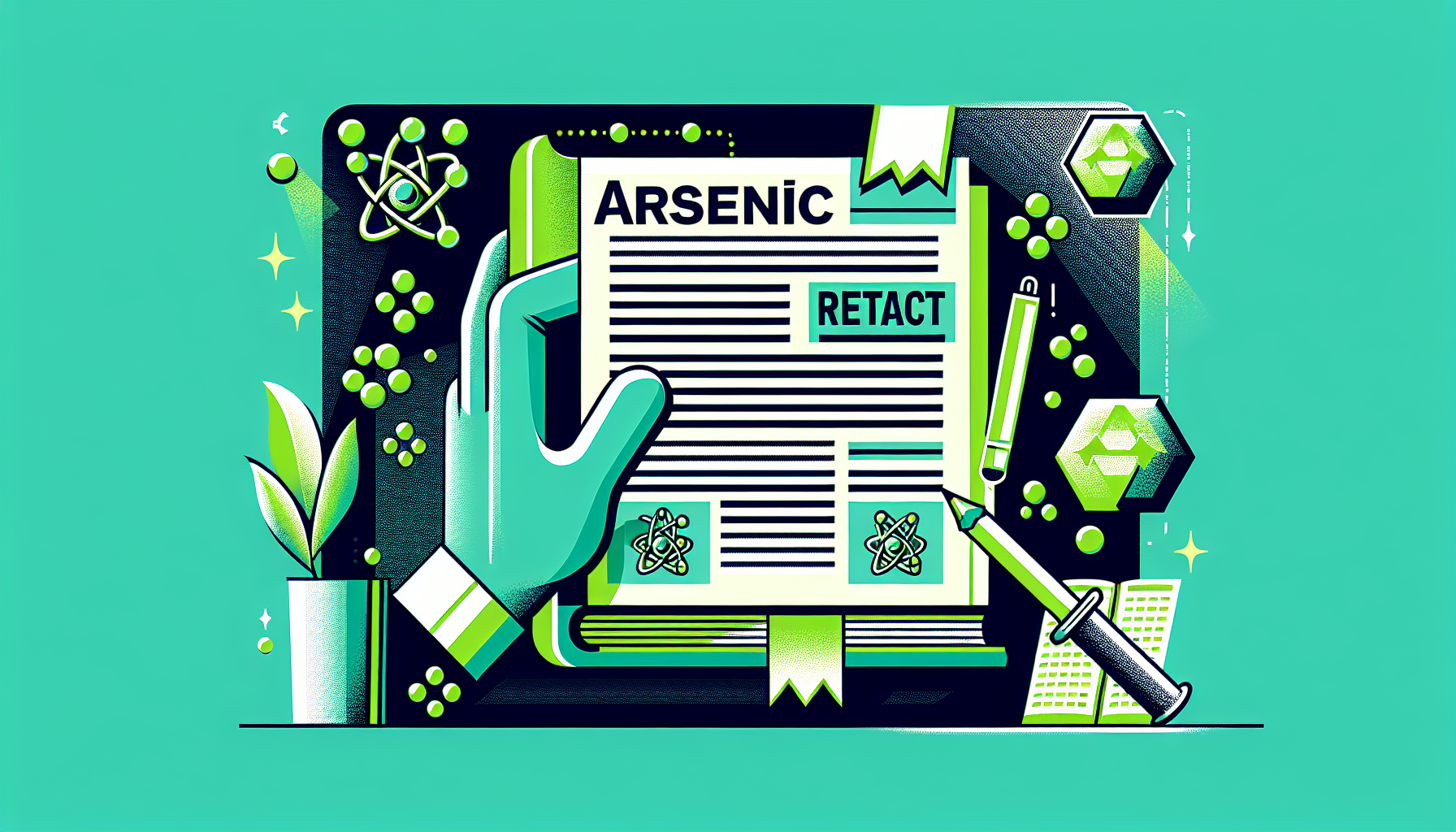Embattled 'arsenic life' paper retracted by journal Science 15 years after publicationLive Science View Full Coverage on Google News ...
Why it matters
- The retraction of the 'arsenic life' paper underscores the importance of rigorous peer review in scientific research.
- This decision highlights the ongoing debate about reproducibility and credibility in the scientific community.
- The case serves as a cautionary tale for researchers regarding the implications of publishing unverified findings.
In a significant development in the scientific community, the journal Science has officially retracted the much-debated study known as the 'arsenic life' paper, which was originally published 15 years ago. This controversial research proposed that certain microorganisms could utilize arsenic as a substitute for phosphorus in their DNA, suggesting a radical rethink of the fundamental requirements for life. However, over the years, the claims made in the study have faced increasing scrutiny and skepticism from various scientists.
The study, spearheaded by researchers at NASA's Astrobiology Institute, initially sparked excitement and inspired discussions about the possibilities of extraterrestrial life forms that could thrive in environments previously thought to be inhospitable. However, as further investigations were conducted, numerous scientists began to challenge the validity of the findings. Critics pointed out that the evidence supporting the claim was insufficient and that the results could not be reliably reproduced in subsequent experiments.
The retraction process was initiated after a series of critiques and a growing body of scientific literature that questioned the original study's methodology and conclusions. In recent years, several independent studies have failed to replicate the original findings, further eroding the credibility of the research. This has culminated in a formal acknowledgment by the journal that the paper did not meet the necessary standards of scientific rigor.
The implications of this retraction extend beyond this single study. It serves as a reminder of the critical importance of reproducibility in scientific research—an issue that has been increasingly highlighted in recent discussions about research integrity. As the scientific community grapples with a growing number of retractions and controversies, this incident emphasizes the need for transparency and accountability in publishing.
The 'arsenic life' paper's retraction is not merely an academic issue; it also reflects broader challenges faced by the scientific community in maintaining public trust. As researchers strive to push the boundaries of knowledge, the pressure to publish groundbreaking findings can sometimes lead to the compromise of rigorous scientific standards. The fallout from this incident may encourage journals and researchers alike to prioritize thorough peer review processes and to be more cautious about the claims they make.
This case also raises important questions about how scientific discourse is conducted in the age of rapid information sharing. In an era where studies can go viral and capture public attention almost instantly, the repercussions of potentially misleading research can be profound. The 'arsenic life' study, in particular, fueled a great deal of media coverage and public interest, which may have overshadowed the need for critical evaluation of its findings.
Going forward, the scientific community must take collective responsibility for ensuring that the integrity of research is upheld and that findings are subject to rigorous verification before being widely disseminated. The retraction of the 'arsenic life' paper serves as a pivotal moment for reflection and reform in the practices surrounding scientific publication.
As researchers, educators, and the public navigate the complexities of scientific inquiry, this incident will likely remain a focal point for discussions about the standards and ethics of research. It underscores the necessity of fostering an environment where skepticism is welcomed and where findings can be openly challenged and tested.
In light of this retraction, the scientific community is now tasked with not only addressing the immediate fallout but also ensuring that lessons are learned to prevent similar occurrences in the future. As we advance our understanding of life and its many forms, the commitment to integrity and authenticity in research must remain at the forefront of scientific endeavor.











